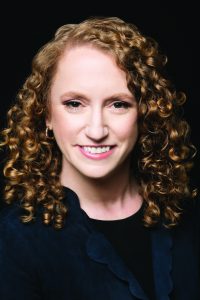The PEN Pod: On NSO Group Accountability, Payroll Credit for Compensation of Local News Journalists, and Eliminating Facial Recognition Technology from Facebook

Photo by Beowulf Sheehan
Every Friday, we discuss tricky questions about free speech and expression with our CEO Suzanne Nossel, author of Dare to Speak: Defending Free Speech for All, in our weekly PEN Pod segment “Tough Questions.” This week, we spoke with Suzanne about the U.S. government’s decision to take action against NSO Group, payroll credit for compensation of local news journalists, and Facebook’s decision to discontinue the use of facial recognition technology. Check out the full episode below (our interview with Suzanne begins at the 21:11 mark).
On the U.S. Government Taking Action Against NSO Group
“I think it’s meaningful. It means that NSO cannot access technologies from U.S. companies, so Microsoft, Dell, Google cannot provide them with hardware, software, services. . . . I also think it’s a real kind of slap at them. This is a company that relies on a technology that was developed by an elite segment of Israel’s defense department that works on cybersecurity, but it has now seemingly been exported and used to target journalists and activists all over the world. NSO kind of says ‘no, no, no, we monitor this, we’ve shut it down,’ but the exposé over the summer about just how widely this is being used really belied that, and the company was not able to come up with a credible explanation that convinced much of anyone that they’ve gotten this under control and were serious about it.
“I think it’s an important statement that technologies that are used for human rights repression are going to elicit consequences. . . . It sounds a note to all technology companies that are providing services to the highest bidder, without real scrutiny in terms of how their technologies may be manipulated and used as part of repression, that there may be serious business consequences.”
On Payroll Credit for Compensation of Local News Journalists
“Newsrooms across the country have been slashed, shuttered; the staffs for investigative reporting and reporting that ensures political accountability have just evaporated, due to the diminution in ad revenue, which used to support the local news industry.
“It’s been great to see these bills be introduced, but it’s extremely important that it be passed. The federal government has to step up here—that was the conclusion that we reluctantly reached in our report, that market solutions and philanthropy could solve a piece of the puzzle, but ultimately a small piece, in terms of numbers and the scale of lost revenue. So this is an important measure. It is particularly important in the run-up to an election; increasingly, we are focused on the links between this local news crisis and the metastasis of disinformation. People are unmoored in terms of where to get credible information, and local news really used to fill that void and be a kind of informational anchor for people, and that has been lost. They’re sort of tossed adrift, not sure what to believe, whether it’s about critical race theory, or about COVID measures, or about inflation, and local news outlets—if they’re better supported—can be part of the answer to that.”
On Facebook’s Decision to Discontinue the Use of Facial Recognition Technology
“I think they’re sort of on a PR offensive to change the narrative, or the story, however they can, so the name change [to Meta] is part of that, and I suspect, I believe, this measure was something under consideration for a long time. It’s something that privacy advocates have been talking about for a long time.
“I think it is a step forward for privacy. You know, there’s been this whole debate about whether Facebook ever does anything that sort of goes against engagement, and I think this probably does go against engagement. . . . I think they’re probably trying to demonstrate that when it comes to certain changes, even that impinge upon that goal of engagement, they’re willing to do it sort of in the name of other considerations—in this case, privacy.
“What I don’t know is how far does it really go—how much engagement are they really sacrificing, are they really deleting that database to the point where those photos can’t be dredged up, come hell or high water. It sort of seems like nothing ever really gets utterly deleted on the internet, and so, I think there’s still some questions to be asked.”






